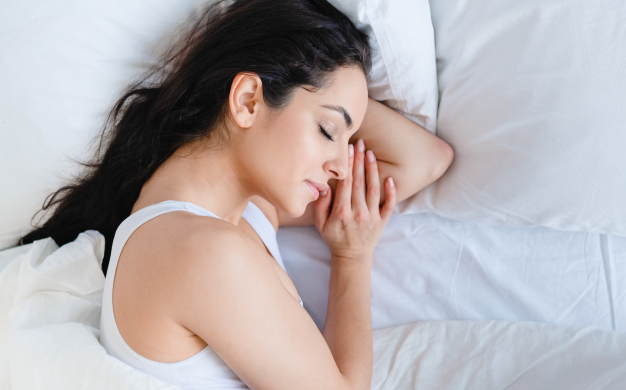The immune system and sleep are interlinked. Immune system activation changes sleep, affecting the immune system’s innate and adaptive arm. Stimulation of the body’s defence system by microbial challenges triggers an inflammatory response.
Sleep is important for your overall health and wellbeing. While sleeping, your body carries out all the major repairs within all the body systems. The function of the immune system is to maintain its integrity and biological individuality by recognizing and eliminating foreign substances.
Indeed, sleep affects various immune parameters; it is associated with reduced infection risk and can improve infection outcomes and vaccination responses. When we sleep, our muscles go into repair mode, waste products are removed from our body cells, and immune responses work to ensure that our body will be fit enough to start another day when we wake.
Sleep-immune interactions are well-known phenomena in everyday life. You might have experienced that an infection makes us immensely tired and increases the desire to sleep. Sound sleep of at least 7 to 8 hours is commonly recommended as the best medicine for an infectious disease.
Some research studies show that getting adequate sleep is essential for your immunity. Your body’s defence system prevents or limits infection in your body. Good sleep can help boost the immune system and even help prevent you from getting sick often. Deep sleep increases your immune system, but it’s also improved antibody responses to vaccinations. This means getting a healthy sleep before and after a vaccination can help vaccines work in your body. This article helps you understand the role that sleep can play in the immune system.
The link between sleep and the immune system
It is said that better sleep means better health. If you have a healthy sleep, you will be better protected against illness? Can a lack of sleep affect your immune system? Well, the answer to all these questions is yes.
Sleep is a normal process that keeps the body and brain, including the body’s immune system, working at their best. Just because we all do it every night, we forget how sleep is a key to our health and wellbeing. Sleep is an effective physiological process that provides the foundation for good health. Many research studies have demonstrated that sleep deprivation negatively affects the immune system.
Lack of sleep & Immunity
The sleeping habits are governed by the circadian rhythm (a natural process that regulates the sleep-wake cycle) and repeated every 24 hours. While you sleep, your body produces cytokines essential for regulating the immune system. Cytokines are needed in large amounts when a pathogen attacks your body cells, or you are under stress. The level of cytokines increases during sleep, and lack of sleep affects the body’s ability to fight off infections. This is also why an individual sleeps more while suffering from any infection. Clinical evidence suggests that chronic sleep loss poses a potential risk to the immune system.
How good sleep improves immunity
Poor sleep can deteriorate immune response; deep sleep can increase immunity. A good night’s sleep helps improve the efficiency of T helper cells (white blood cells that fight invading bacteria, viruses, or any foreign antigen cells as part of the body’s immune system). When a foreign substance enters the body, our immune cells identify hem and release a protein called integrin, which helps T cells to adhere to the foreign antigens and ultimately destroy it.
It was found that hormones like adrenaline and noradrenaline interrupt T cells from combing with integrins proteins. The level of these stress hormones and pro-inflammatory molecules like prostaglandins decreases during sleep. Hence, good sleep boosts the efficiency of T cells and improves the body’s immune response.
The benefits of deep sleep are well established in studies. A good sound sleep must be a priority in every individual’s life. Maintaining sleep hygiene like sleeping on a comfortable mattress in a dark, cold environment and eliminating the use of electronics at night can help you achieve deep sleep. Regular exercising and avoiding alcohol and caffeine improve the quality of sleep.
Conclusion
Following a healthy sleep pattern and a healthy diet and exercise can help boost your immune system and maintain overall health. Building a consistent night-time routine can act as a way to inform your body that it’s time to release hormones for quality sleep. Turn off your phones, laptops, and other gadgets. Take a warm bath with lavender aromatherapy. Follow these methods to allow your body to restful sleep, but all you need is to be consistent. You will feel energized and ready to begin another day when the morning comes back.




